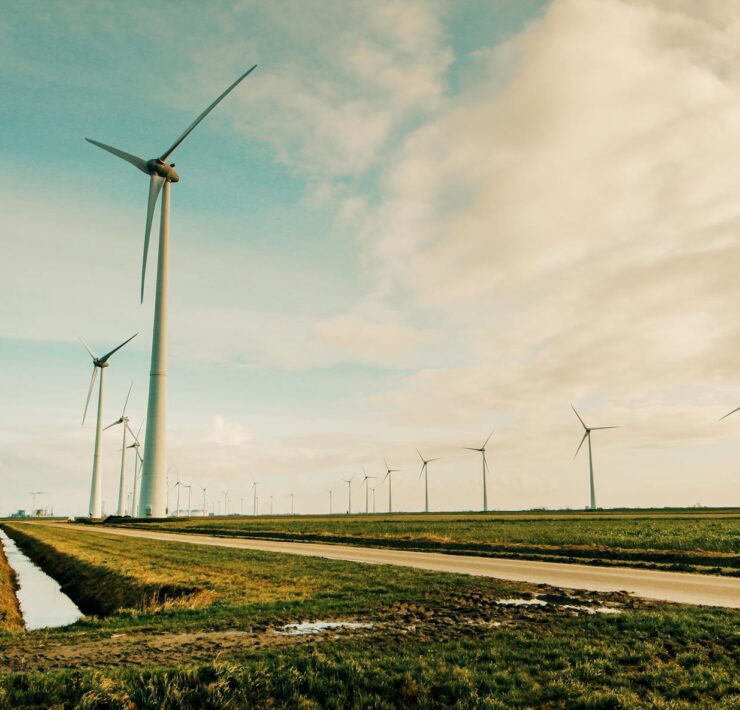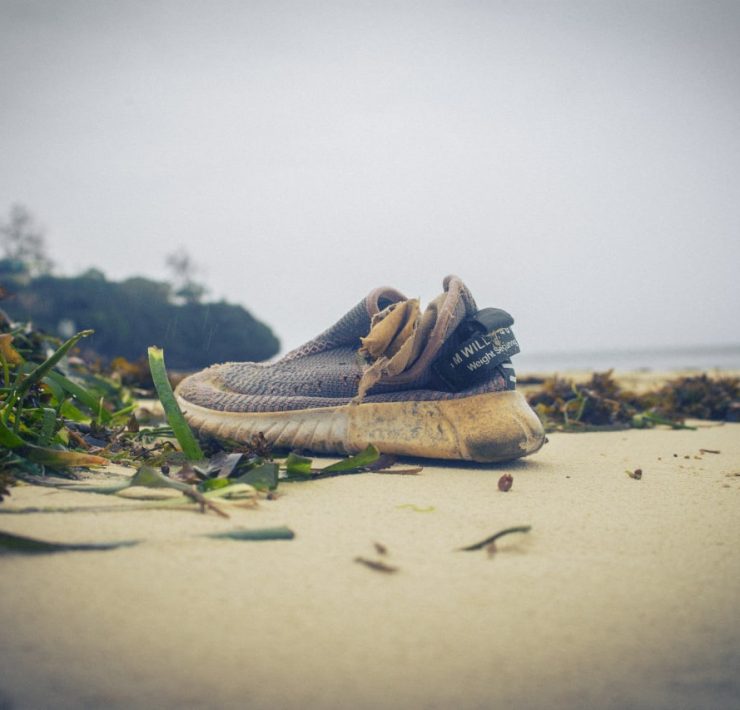Beach Cleaning and the Safety of Sea Turtles
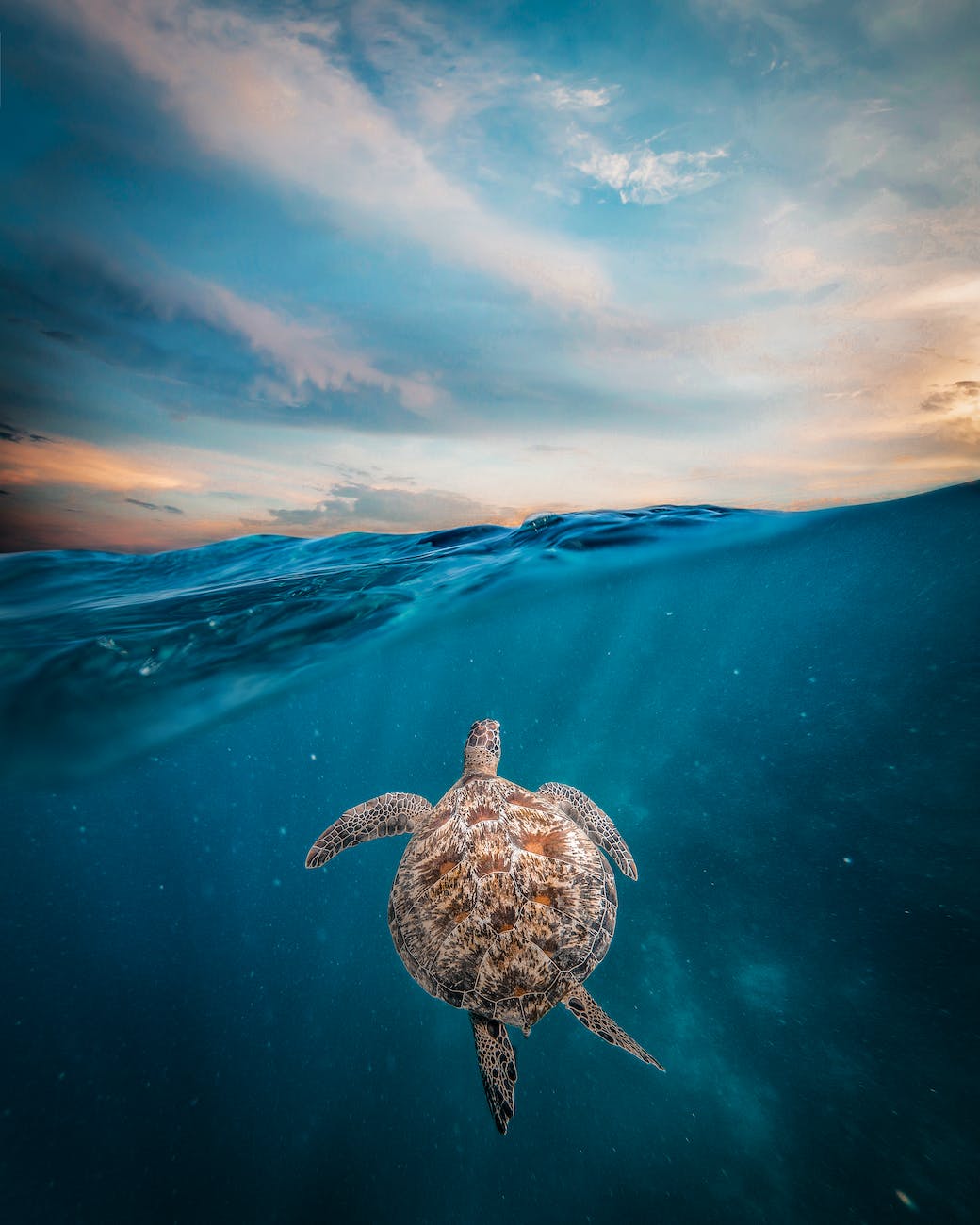
Samuel Phillips is a writer, graphic designer, photographer, songwriter, singer…
More often than not, the seemingly little things that we take for granted or the big things that we procrastinate about because we think we have time, are the very things that are wreaking havoc in our lives, environment, ecosystems and food systems. There are a lot of noisy conferences going on globally by those who call themselves elites, about climate change, but who are not ready to change the policies and the actions of the very companies and corporations that they own and who are the major culprits when it comes to what creates climate change. We have seen what Covid-19 did to the unprepared health systems of the world and how it damaged individuals and caused much pain to families, even though many today still wonder why the evil prediction about Afrikans dying on the streets did not happen. Concerning that, I believe the Divine factor, natural medicine and a less polluted Afrikan environment really helped us against the evil called Covid-19 and thus we were prepared in ways we had not been paying attention to but which we should really now consciously do. And about such preparation, I heard in the news that the Lagos state government in Nigeria has started a project where herbal clinics/offices will be built close to allopathic hospitals. They want to do this because they believe that giving their people choices of what medicine they want to use is a way to strengthen the health system. And that makes a lot of sense. Because natural medicine is actually a primary source of health care according to the World Health Organization. So, I say a big YES to the initiative and kudos to everyone involved in the planning.
Now, we are dealing with a supposed shortage of food globally and more people are trying to tie it to the war in Ukraine. To some extent, someone may be correct to say so, but I really do not agree. Here is my thought: I am of the opinion that every global crisis should be another chance for Afrika and Afrikans to rethink what self-sustainability really means and also requires. But like many of the things we have taken for granted for decades, how much have we learnt from the various things that we have seen happening in the global space; from Covid-19 and now to the war in Ukraine? Afrikan governments celebrate independence every year, which I personally think is nothing but the celebration of the memory of slavery, but cannot independently grow the food required for their people? If Afrika has some of the largest arable lands in the world, how is it so difficult to be self-sustaining in food production? Why has the fighting in Ukraine led to food emergencies in Afrika just like every crisis outside of Afrika always brings crisis into Afrika?
There is a lot to talk about that question, but I will leave that for the experts. By the way, you can read the answer to that question and much more as posited by Lawrence Freeman in his article which we published here on this website: Why has Fighting in Ukraine led to Food Emergencies in Africa?
Taking care of ocean life in Mombasa, Kenya
The other day I was on a walk on the beach in Mombasa. I started my walk from the area of White Sands hotel towards Flamingo hotel which is quite a long stretch along the beach and quite a therapeutic experience too, especially if the water is out and you walk barefoot. I stopped to sit on a bench under a tree very close to Serena Hotel to just take some photos of what was going on along the beach. Not so far from me, I saw this young guy raking seaweed and removing plastics from the beach. I was really interested in what he was doing, so I called to ask him a few questions. He came and sat with me and we started talking. He told me his name is Athman Amir. I asked him who is in charge of the cleaning of the beach and why they do it. He gave me some answers which were kind of new to me, and that was obviously because I had not thought about beach cleaning from that angle. He was very articulate in his explanation and I am thankful to him for the new knowledge. Something struck my mind when he said that the project for the cleaning of the beach was a Kenyan government project under the Kenya Wildlife Service (KWS). What hit me was not that it’s a Kenyan government project, who else should it be, but that it is handled by the KWS. That was the first time I suddenly realized that ocean creatures are actually wildlife. Oh my! See my surprise. We know when you mention KWS and wildlife, the first things that come to mind are buffalos, lions and the many animals in Maasai Mara or in the many other animal parks. This new knowledge was actually what got me to continue talking with him. So, I engaged him and further and he gave me some reasons why they clean the beach.
Below are the points he shared with me and I think he did a good job.
1: To save the sea turtle from plastic suffocation
Serena Hotel in Mombasa happens to have a turtle hatchery by the beachside and I found that very interesting and cool. From Amir, I learnt that sea turtles are not able to differentiate between small bits of plastic from jellyfish which is their main food. So, Amir and his colleagues have to clean the beach daily to prevent plastic from entering the sea and then being ingested by the sea turtles. If you ask me, that’s what I would call dealing with environmental and eco-systemic issues before they become a crisis and a national disaster. Sea turtles are a very important part of ocean life and not protecting them has its consequences. Why protect them? Sea turtles are among the oldest creatures on earth and have remained essentially unchanged for 110 million years. However, they face an uncertain future. Sea turtles are threatened in many ways, such as encroachment of coastal development on their nesting beaches, encounters with pollutants and marine debris, accidental drownings in fishing gear, and international trade in turtle meat and products. We must do all that is required to make our beaches safe for sea turtles that come for laying of eggs during the breeding seasons. To not do so, is to make room for some preventable disaster.
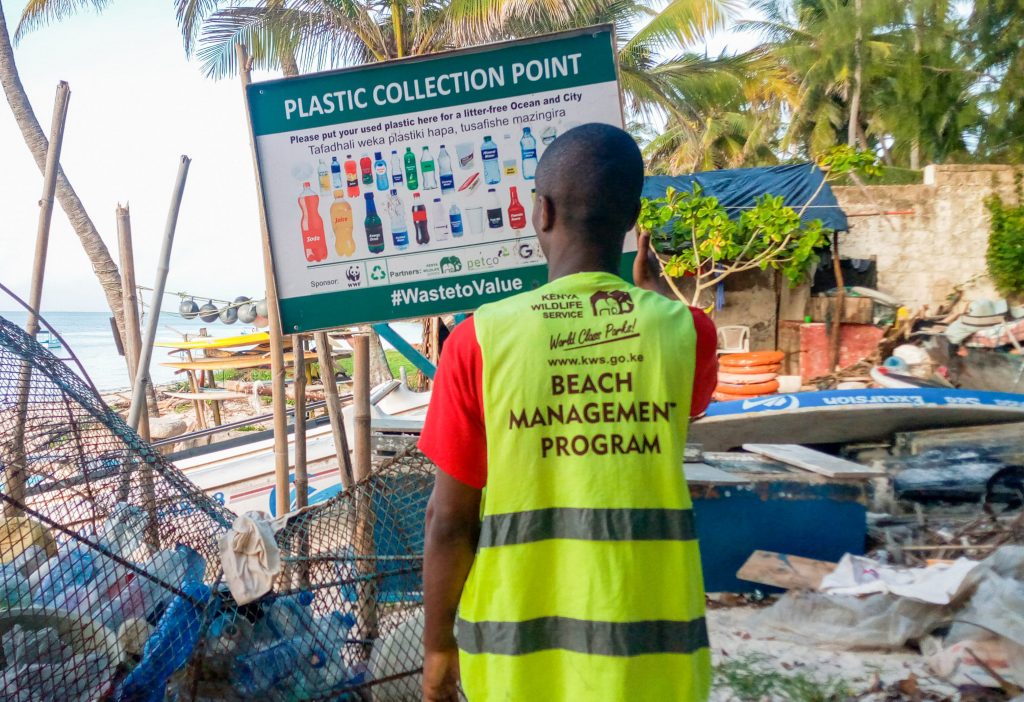
2: Clean beach for tourism
This might not be my most important point, but it’s also ok to talk about it. I am of the opinion that, we do not need to clean our environment because we want to attract tourists, either local tourists or foreign ones. But now that tourism has become a multi-billion-dollar business in Afrika, we just have to talk about this point.
Some of the most popular hotels in Kenya are situated along the coastline and it definitely makes sense that the beaches are cleaned for tourists who patronize those hotels and also engage with locals who sell their wares on the beach.
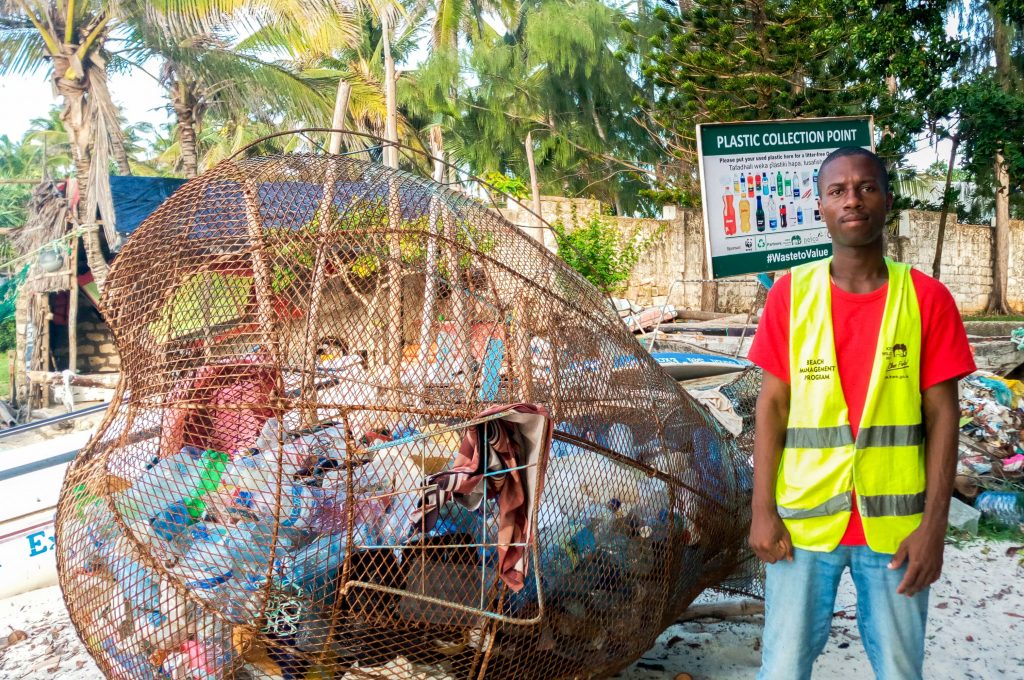
3: Plastic recycling
I have written before about plastic waste and the poisoning of ocean life, but speaking with Athman Amir really gave me more things to think about. In my last article about plastic waste and the poisoning of ocean life, I touched on the issue of why it is that even with the presence of waste bins along the beach of Mombasa North coast, you still see plastic waste on the ground every now and then, probably dropped by people who really don’t care that there are bins where they can drop their wastes or brought in from another place by the ocean wave.
In explaining his job to me, Athman made me understand that when they pick the plastics from the beach and store them in the designated bins for plastics, the plastics are taken away to be recycled into new plastic products. He showed me the signpost close to the bins and the various plastic bottles that the plastic waste is recycled into.
I really appreciate the fact that the plastic waste ends up being recycled for new plastics products, but my concern is that, they are never really destroyed or removed from the environment. They just changed shape, sizes and color. They remain plastics and that is still a problem. Plastics, no matter what shape, size or form they come in, never really disintegrate and so they continue to be poison to our ocean and land. I think there are alternatives to plastics right now and we should really take those alternatives up if we really want to deal with the issue of plastic poisoning in our food and water. I know someone will say, so what are we going to do with the waste products of fossil fuels from which plastics are made? Who says we must be dependent on fossil fuels? We can see the environmental damage that pollution from rogue petroleum companies has caused in Afrika and in many other places in the world. Years of oil spillage from oil companies have destroyed ecosystems in the Niger Delta, areas of Nigeria where fishing and farming have become nightmares. That, definitely should not continue for any reason. We must innovate and create a new way to produce energy. Just a thought, is it possible to have cars that are powered by nuclear energy just like there are nuclear-powered submarines? Such fuel will never need to be changed for the entire life of such cars. But is it a possibility? I do not know. My point, however, is that we must do better with finding alternatives to single-use plastics and also get reusable energy.
4: Jobs for the young people living in the beach/coastal communities.
I love when communities are able to derive their sustainability from their immediate environment. So, when Athman spoke about the fact that cleaning the beach is one way that young people from the coastal communities make their daily bread, that warmed the heart. In a supposed “third world” country, it is easy as a young vibrant person to fall into crime and criminality when there are no opportunities for making daily or monthly wages for upkeep. But I do hope that the Afrikan youth can emancipate in their minds to the point where they now see life as bigger than just getting jobs for daily upkeep but doing what is legally required for their destinies and purposes. There is a continental shift going on for the Afrikan youth and only those who are flexible in their minds can emancipate into that shift. The population of young people in Afrika is about seventy per cent of the entire population in Afrika. That’s a mega universe of brains and creative power to change the backward narrative of the Afrikan people. Out of that mega universe of young people can come forth creative photographers, innovative scientists, eloquent speakers, politicians with dignity, music artistes and the list is endless. We must create the enabling environment for our young people so they stop just being hustlers of daily bread to creators of systems that create “bread” in every sector of our societies.
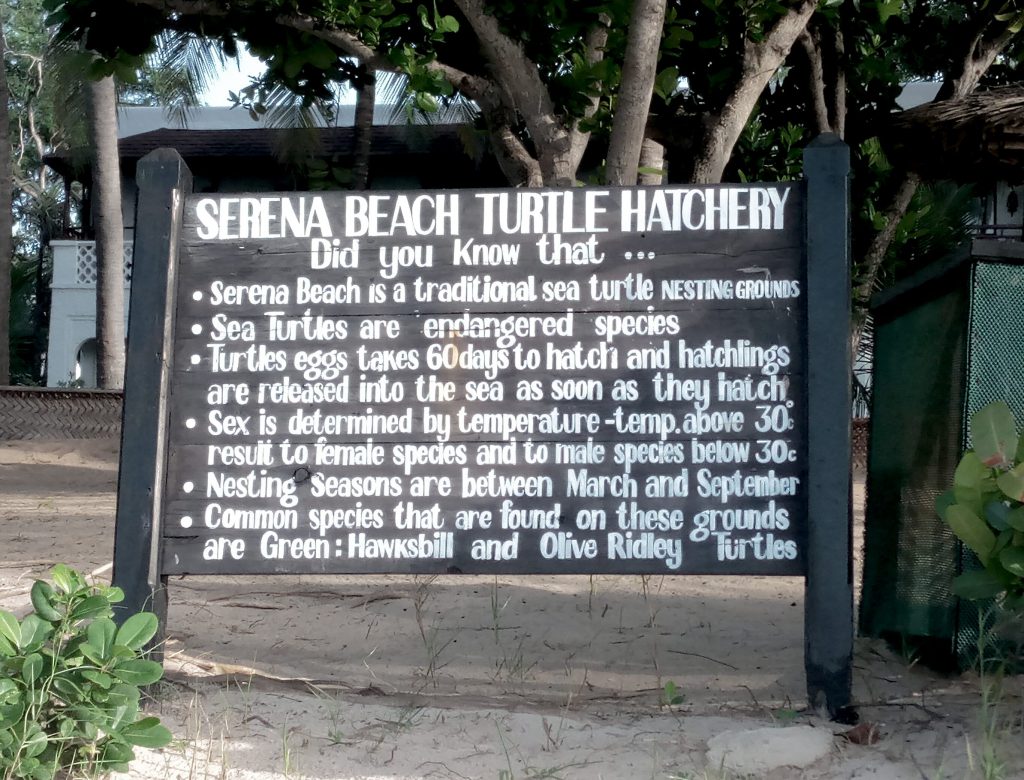
Back to turtles, there is a notice board at the beach side of Serena hotel. I think it’s the sign that says there is a turtle hatchery right there. I had hoped I was going to one day see the turtle hatching event, who knows, it might still happen. On the board are written some things about turtles. It says:
“Did you know that
- Serena beach is a traditional sea turtle nesting ground.
- Sea turtles are endangered species
- Turtle eggs take sixty days to hatch and hatchlings are released to the sea as soon as they are hatched
- Sex (of turtles) are determined by temperature. Temperature above 30 degrees results to female species and to male species, below 30 degrees.
- Nesting season are between March and September
- Common species that are found on these grounds are Green Hawksbill and Olive Ridley turtles.”
In conclusion, the fact is that every creature both on land and in the ocean counts. We, humans, have been given a very divine mandate to watch and take care of this earth and that is irrespective of what we believe in as religion or spirituality. To not do this mandate is to open the earth and ourselves to some imminent global crisis beyond what our little science can handle.
We must, like Athman Amir and his colleagues and even the KWS, take charge of our environment and keep nature alive. For those who think they can destroy the earth and then fly in their rockets to live on Mars, I hope you do not find out too late how stupid your actions are. Earth is our home and we all must watch over it before it becomes uninhabitable.
What's Your Reaction?
Samuel Phillips is a writer, graphic designer, photographer, songwriter, singer and a lover of God. As an Afrikan content creator, he is passionate about creating a better image and positive narrative about Afrika and Afrikans. He is a true Afrikan who believes that the true potential of Afrika and Afrikans can manifest through God and accurate collaborations between Afrikans. Afrika is the land of kings, emperors, original wisdom, ancient civilizations, great men and women and not some road-side-aid-begging poor third world continent that the world finds joy in undermining.












